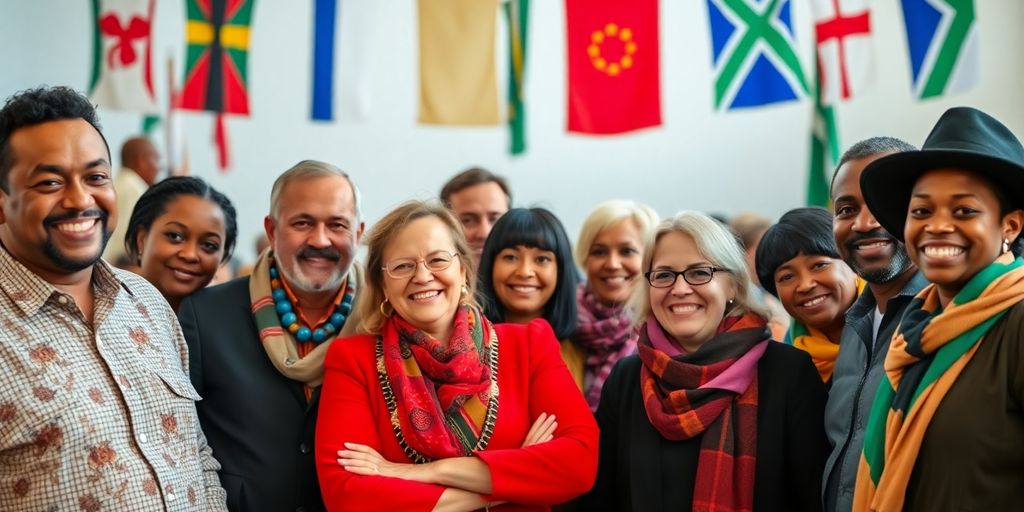Child Welfare
Trump’s Controversial Refugee Policy: Afrikaners Welcomed Amid Global Ban

The Trump administration is set to welcome a group of white South Africans, known as Afrikaners, as refugees, despite a broader ban on refugee admissions. This decision has sparked significant controversy, highlighting disparities in the treatment of different refugee groups and raising questions about the motivations behind this policy shift.
Key Takeaways
- The Trump administration plans to resettle 54 Afrikaners in the U.S. next week, despite a suspension of refugee admissions for other groups.
- The South African government disputes claims of racial persecution against Afrikaners, calling the U.S. actions politically motivated.
- Critics argue that the expedited processing of Afrikaners contrasts sharply with the plight of thousands of other refugees waiting for resettlement.
Background on the Refugee Ban
Since taking office, President Trump has implemented a near-total ban on refugee admissions, citing national security concerns. This policy has left many vulnerable populations, including families from war-torn regions, stranded in limbo.
- Suspension of Refugee Admissions: The ban has halted the entry of refugees from various countries, including those fleeing violence and persecution.
- Court Orders Ignored: Recent court rulings have mandated the resumption of processing for thousands of refugees who were approved before the ban, yet the administration has been slow to comply.
The Afrikaner Exception
In a surprising move, the Trump administration has created a pathway for Afrikaners, claiming they face racial persecution in South Africa. This decision has raised eyebrows, especially given the historical context of apartheid and current socio-economic dynamics in South Africa.
- Claims of Persecution: The administration argues that Afrikaners are victims of discrimination, particularly following recent land reform laws in South Africa.
- Rapid Processing: While other refugees often wait years for processing, Afrikaners are being expedited through the system, with some cases taking as little as three months.
Reactions from South Africa and Advocates
The South African government has publicly criticized the U.S. decision, asserting that the claims of persecution do not meet the legal thresholds for refugee status.
- Official Response: South African officials have labeled the U.S. actions as politically motivated, aimed at undermining the country’s democratic processes.
- Advocacy Groups Speak Out: Human rights organizations have condemned the preferential treatment of Afrikaners, emphasizing the plight of other refugees who remain in dire situations.
Implications for U.S. Refugee Policy
The decision to prioritize Afrikaners raises significant questions about the future of U.S. refugee policy and its implications for global humanitarian efforts.
- Disparities in Treatment: Critics argue that this move exemplifies a troubling trend in U.S. immigration policy, where certain groups are favored over others based on race and political considerations.
- Potential for Legal Challenges: The administration’s actions may face legal scrutiny as advocates push for equal treatment of all refugees, regardless of their nationality or race.
Conclusion
As the Trump administration prepares to welcome Afrikaners to the U.S., the broader implications of this policy shift continue to unfold. The stark contrast between the treatment of Afrikaners and other refugee populations underscores the complexities and challenges facing U.S. immigration policy today. Advocates for refugees are calling for a more equitable approach that honors the humanitarian principles upon which the refugee program was founded.
Sources Used for This Article
- Trump Officials Seek to Bring First White Afrikaners to U.S. as Refugees Next Week, The New York Times.
- Daily State of Play: Trump’s Indefinite Refugee Ban and Funding Halt, CWS.
- Trump suspended the refugee program. Why is he inviting white South Africans to find a new home in the U.S.?
| PBS News, PBS.
-

 Press Release4 days ago
Press Release4 days agoClinical Trials Market Set for Robust Growth, Driven by Drug Development Surge and Digital Innovation
-

 Press Release5 days ago
Press Release5 days agoFill-Finish Pharmaceutical Contract Manufacturing Market Expected to Flourish Amid Biopharmaceutical Boom and Global Outsourcing Trend by 2035
-

 Business6 days ago
Business6 days agoHow Managed IT Solutions Help Small Teams Compete at Enterprise Scale
-

 Press Release5 days ago
Press Release5 days agoGreen Bio Chemicals Market Poised for Sustainable Growth amidst Global Shift to Eco-Friendly Alternatives by 2035
-

 Press Release5 days ago
Press Release5 days agoIndustrial Boiler Market Expected to Surpass USD 24.4 Billion by 2035 Amid Growing Demand for Energy Efficiency and Industrialization
-

 Press Release5 days ago
Press Release5 days agoPreventive Vaccines Market to Witness Strong Growth by 2035
-

 Press Release5 days ago
Press Release5 days agoPet Food Nutraceutical Market Set for Robust Expansion Amid Rising Demand for Pet Wellness by 2035
-

 Press Release4 days ago
Press Release4 days agoWaterproof Structural Adhesives Market: A Comprehensive Study Towards USD 10.3 Billion in 2035






























